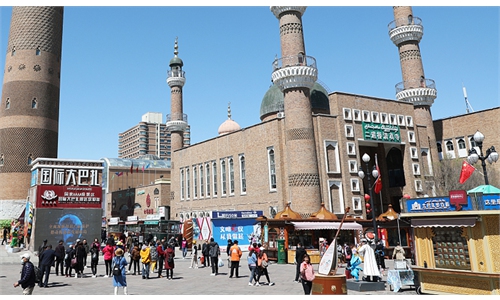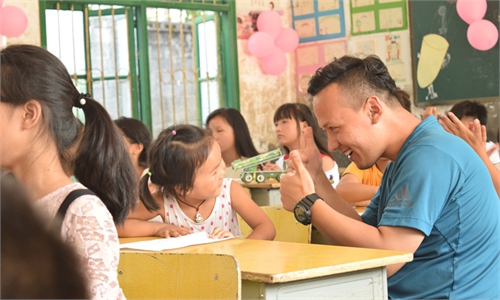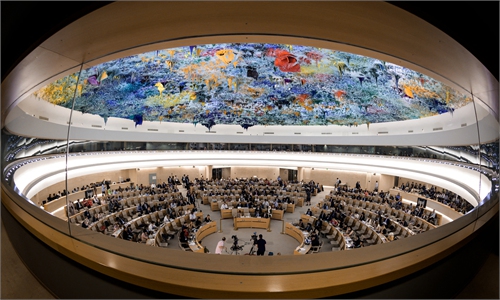
Local residents who are involved in the tourism business play music for tourists in the old town of Kashgar, northwest China's Xinjiang Uygur Autonomous Region, July 9, 2019. Photo:Xinhua
One of this year's Pulitzer Prize winning stories from the US' Buzzfeed News has drawn attention from Chinese netizens over its claim from one year ago "revealing" that more than 300 locations were being used in an "internment program" in Northwest China's Xinjiang Uygur Autonomous Region, and has been refuted by netizens and local residents.
By not even verifying facts in the so-called report from Buzzfeed News before giving the award, the Pulitzer Prize, which is seen as the highest honor in journalism, has become a tool used to promote anti-China reports without professionalism or authenticity, analysts said.
In August 2020, the Pulitzer winning "report" by Buzzfeed claimed that it used China's Baidu Maps to identify blank locations where it found a network of buildings bearing the hallmarks of "prisons and internment camps" in China's Xinjiang. By using satellite imagery, the news site said it had identified 428 such locations "bearing the hallmarks of prisons and detention centers" since the summer of 2018, and said it believes "315 are in use as part of the current internment program."
However, a netizen surnamed Chi found that a spot that the Buzzfeed story claimed to be a "camp" in Shule county of Kashi Prefecture in southern Xinjiang is in fact a residential community. He also found that most of the locations that Buzzfeed alleged to be "camps" can be found on Baidu Maps.
Residents in the community and relevant departments reached by the Global Times in Shule county said there are no training centers in the location that the Buzzfeed story referred to. No "hallmarks of prisons and internment camps" could be found by the Global Times, using either Baidu Maps or Google Maps.
Aside from its authenticity, this series of stories on China's Xinjiang was also found to be supported by the Pulitzer Center and the Open Technology Fund (OTF), which Benjamin Norton, in a report on the US independent news website Grayzone, pointed out was a CIA cutout.
"OTF was originally part of Radio Free Asia, a propaganda weapon created by the CIA; now OTF is under the US Agency for Global Media," Benjamin Norton wrote on his Twitter account.
Analysts pointed out that even with these serious factual mistakes, Buzzfeed story still won the Pulitzer Prize, showing that especially when it comes to international news reports, the prize is not meant to reward journalists who seek truth but to award whose who have contributed to the US propaganda war against its rivals.
Judith Miller, who won the Pulitzer Prize in 2002 for her coverage of global terrorism before and after the September 11 attacks, is another example. It was later exposed that her coverage of Iraq's Weapons of Mass Destruction (WMD) program, which led to the US' invasion of Iraq, was later discovered to have been based on inaccurate information from the intelligence community.
Global Times



